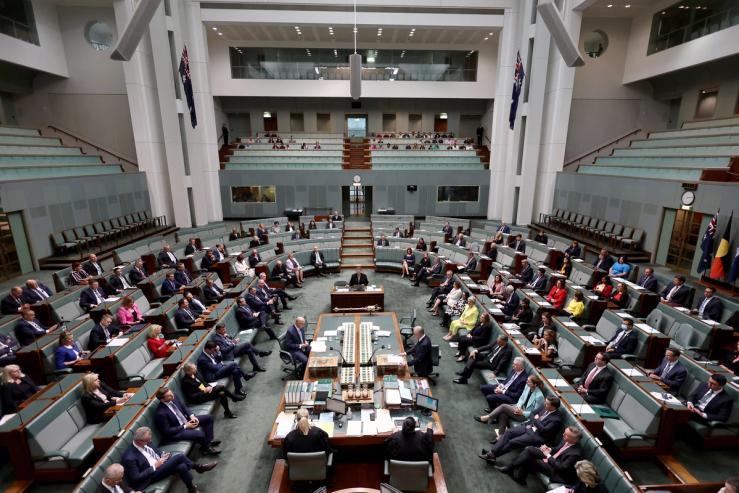The News
A ban on Nazi symbols went into effect this week in Australia. Drafted in June last year, the law will make publicly performing a Nazi salute or displaying a Nazi swastika, or the double-sig rune symbol of the Nazi paramilitary group Schutzstaffel (SS) an offense punishable by up to 12 months in prison. The country’s Attorney-General Mark Dreyfus said that there is “no place in Australia for acts and symbols that glorify the horrors of the Holocaust and terrorist acts.”
The ban comes amid a rise in right wing protests and antisemitic incidents reported by Australian Jewish groups in recent months, in light of the Israel-Hamas war.
SIGNALS
Far right extremism’s rise in Australia parallels the U.S.
Despite their historical and cultural differences, “Australia is not immune to individuals identifying or sympathizing” with America’s far-right and extremist ideologies, one Australian National University professor wrote in 2022. Australia’s spy agency said in 2021 that nearly 50% of its investigations were focused on “ideologically-motivated violent extremism, such as racists and nationalists.” Some of the local far-right groups are modeling themselves after U.S.-based white nationalist groups such as the Proud Boys, one Melbourne-based extremist expert told TIME. In 2023, a group of neo-Nazis repeatedly performed the Nazi salute on the steps of the Victorian parliament in Melbourne during clashes with trans rights activists. Until recently, extremism “was not a big problem in Australia,” one terrorism expert told VOA, but “law tends to follow need once it became clear that there was now Nazi activity” in the country.
Incidents of antisemitism and Islamophobia have risen since the Israel-Hamas war began
Islamophobic and antisemitic incidents – including threats to places of worship and Muslim and Jewish schools, spitting at women, and property damage – have risen substantially in Australia since the Oct. 7 Hamas attacks and Israel’s military campaign in Gaza, according to The Guardian. The country’s Executive Council of Australian Jewry said there was more than a sevenfold increase in reported antisemitic incidents in October and November 2023, compared with the same period in 2022, while the Islamophobia Register Australia reported a 13-fold increase in anti-Muslim incidents, The Washington Post reported. Both groups expect that the real number of incidents is “much higher” due to historical underreporting.
National ban streamlines punishment, but doesn’t address ‘deeper societal issues’
Prior to the national law, different states had enacted their own laws banning Nazi symbols, with “inconsistencies” and “no consensus on the most effective approach,” the Conversation reported. So, it was an offense to display a Nazi tattoo in Queensland and New South Wales, but not in Victoria and Tasmania. And neo-Nazi groups could simply avoid prosecution “by adapting the symbols and gestures they use,” in each state. While the new national law could address such loopholes, one expert told TIME that such bans don’t address the deeper societal issues that encourage extremism. “They’re effectively playing whack-a-mole by hitting far-right extremists as they pop up in different manifestations around the country,” he said.



